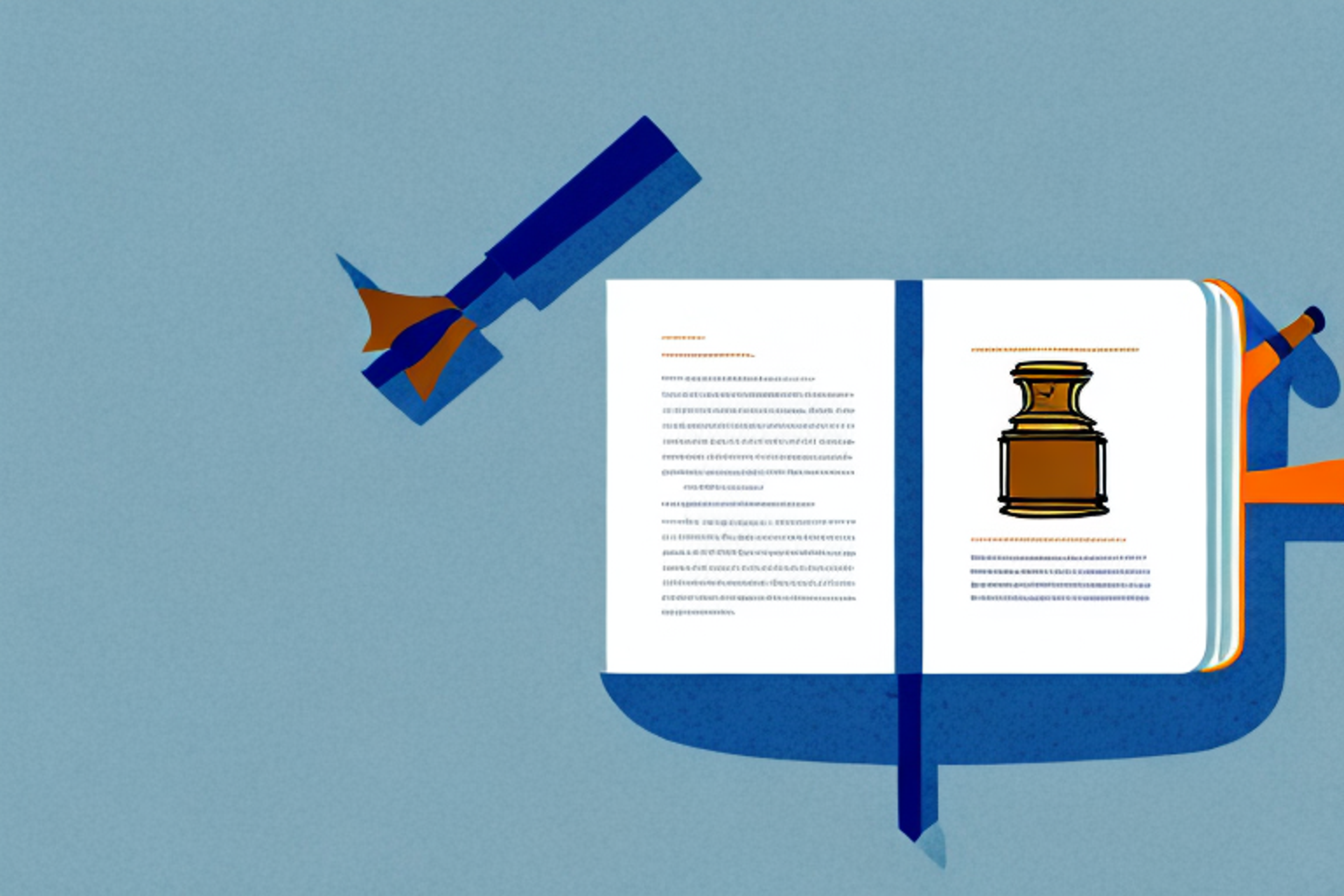How to Get Into UNC Chapel Hill Law School
Discover how to get into UNC School of Law with expert tips on LSAT scores, GPA, personal statements, and deadlines. Learn admission requirements and boost your chances at this top-ranked law school.
Posted July 17, 2025

Table of Contents
Free Event

Featuring Michael S.
Let's Get You Into Your Goal Law School!
Starting Saturday, September 6
5:00 PM UTC · 60 minutes

Featuring Michael S.
How Hard Is It to Get Into UNC Law School?
The UNC School of Law is a highly competitive law school with an official acceptance rate of about 15.1% for the JD Class 2027. In this admissions cycle, the school received 2,622 applications and extended 397 offers of admission, enrolling an incoming class of 181 students. Based on these official figures, the yield rate (the percentage of admitted students who enrolled) was approximately 44.6%, indicating that nearly half of those admitted chose to attend UNC School of Law.
The class is evenly split between North Carolina residents (49.72%) and out-of-state students (50.28%), reflecting the school’s national appeal. UNC Law is consistently ranked among the top 25 law schools in the nation by U.S. News & World Report. Its world report ranking underscores the school's competitive nature and prestige.
As one of the oldest law schools in the country, established in 1845, it has built a reputation for producing Carolina Law graduates who become leaders in legal practice, government, and public service. The school is accredited by the American Bar Association, highlighting its commitment to providing a quality legal education that prepares students for practice in any jurisdiction.
The median LSAT score for the Class of 2027 is 167, with a 25th-75th percentile range of 164-168. The median GPA is 3.85, with a range of 3.73-3.92. The incoming class comes from 90 undergraduate institutions and 54 different majors, with students representing 27 states, Washington, D.C., the U.K., and South Korea. The class is 50.8% female and 46.4% male. UNC Law attracts applicants with strong academic credentials, but the admissions committee also looks for leadership potential, diverse experiences, and a demonstrated commitment to public interest law. The school’s low student-faculty ratio, hands-on experiential learning programs, and access to specialized legal clinics make it an appealing option for North Carolina residents and out-of-state applicants alike.
Gaining admission to UNC-Chapel Hill Law requires a competitive LSAT score, strong GPA, compelling personal statement, and standout recommendation letters. In this guide, we will break down every part of the UNC Law application process, helping you maximize your chances of earning a spot in this top-ranked program.

UNC Law School Acceptance Rate Over Time
UNC School of Law is a highly competitive public law school, attracting top applicants from North Carolina, across the U.S., and internationally. Below is the accurate acceptance rate data for recent entering classes:
| Class Year | Applications Received | Offers of Admission | Enrolled Students | Acceptance Rate | Yield Rate |
|---|---|---|---|---|---|
| 2027 | 2,622 | N/A | 181 | 15.1% | 50.28% |
| 2025 | 2,766 | N/A | 188 | 16.30% | 60.64% |
| 2024 | 3,400 | 530 | 230 | 15.6% | 43% |
| 2023 | 3,200 | 510 | 210 | 15.9% | 41% |
Over the years, UNC School of Law has remained highly competitive, attracting top applicants from North Carolina, Columbia, Canada, and beyond.
View the Full UNC Law School Class Profile
Programs Offered by UNC Law School
UNC School of Law offers rigorous and hands-on legal education designed to prepare students for careers in various legal fields. With 179 years of excellence, Carolina Law provides students with the foundational knowledge, practical experience, and flexibility needed to excel in legal practice. The University of North Carolina School of Law, one of the oldest law schools in the United States, is renowned for its prestigious history and top-tier rankings.
Juris Doctor (J.D.) Program
The J.D. program is a three-year, full-time degree requiring 86 credit hours, with at least 65 in-class credits. The first-year curriculum includes core courses such as Civil Procedure, Contracts, Constitutional Law, Criminal Law, Property, Torts, and Research & Writing. Upper-level students can specialize in fields like corporate law, civil rights, or environmental law through electives, clinics, and externships.
Students must complete Professional Responsibility, a Rigorous Writing Experience (RWE), and six experiential learning credits. The program must be finished within five years, and students must maintain a 2.25 GPA to graduate.
Master of Laws (LL.M.) Program
The LL.M. in U.S. Law is a one-year, full-time degree for foreign-trained lawyers seeking expertise in American legal principles. LL.M. students take courses alongside J.D. students, with the flexibility to focus on areas such as corporate law, human rights, and environmental law.
Dual-Degree Programs
UNC Law offers dual-degree options allowing students to earn a J.D. alongside a second graduate degree. Common programs include:
- J.D./MBA (Kenan-Flagler Business School) – Corporate law and business leadership (4 years).
- J.D./MPA (School of Government) – Public administration and legal policy (4 years).
- J.D./MPH (Gillings School of Public Health) – Health law and policy (4 years).
- J.D./MPP (Duke University) – Law and public policy (4 years).
- J.D./MSW (School of Social Work) – Law and social welfare advocacy (4 years).
These programs enhance career flexibility by integrating law with business, policy, health, and government.
Experiential Learning
Legal Clinics
UNC Law offers 11 in-house clinics, where students gain hands-on experience representing clients. Popular clinics include:
- Civil Legal Assistance Clinic – Housing, consumer, and benefits cases.
- Intellectual Property Clinic – Patent and trademark law.
- Immigration Clinic – Asylum and deportation defense.
- Youth Justice Clinic – Juvenile defense.
Externships
UNC Law partners with 125+ externship placements, including courts, government agencies, nonprofits, and corporate legal departments. Externships provide real-world legal experience in areas such as criminal law, environmental law, and corporate law.
Advocacy Programs
UNC’s Holderness Moot Court and Broun National Trial Team allow students to compete in national trial and appellate advocacy tournaments, refining their litigation and negotiation skills.
UNC Law School Admissions Stats: LSAT, GPA, & Class Profile
The UNC School of Law attracts a high-achieving and diverse group of students with strong academic backgrounds. Below are the most recent admissions statistics for the entering class:
- Median LSAT Score: 167
- LSAT Range (25th-75th Percentile): 164-168
- Median GPA: 3.85
- GPA Range (25th-75th Percentile): 3.73-3.92
- Enrollment: 181 students
- Women: 50.8%
- Men: 46.4%
- Non-Binary/Did Not Disclose: 2.8%
- Students of Color: Data not specified
- North Carolina Residents: 49.72%
- Out-of-State Students: 50.28%
- Age Range: 20-46
- Colleges & Universities Represented: 90
- Undergraduate Majors: 54
- States & Countries Represented: 27 states, Washington, D.C., United Kingdom, and South Korea
In addition to tuition, the total cost of attendance at UNC School of Law includes living expenses such as rent, food, and insurance. These essential expenses are significant factors for prospective students to consider when planning their education budget.
UNC Law seeks a diverse and academically strong incoming class, selecting students who bring unique perspectives, leadership experience, and a commitment to public service. The school’s competitive LSAT and GPA ranges reflect the high caliber of students who enroll each year.
LSAT & GPA Stats
| 25th Percentile | 50th Percentile (Median) | 75th Percentile | |
|---|---|---|---|
| GPA | 3.73 | 3.85 | 3.92 |
| LSAT | 164 | 167 | 168 |
Note: UNC Law does not require the GRE, and there is no published GRE data for admitted students.
What LSAT Score Do You Need for UNC School of Law?
To be a competitive applicant at UNC Law, an LSAT score of at least 167 (median) is recommended. However, successful applicants score between 164 (25th percentile) and 168 (75th percentile).
How to Get Into UNC Law With a Low LSAT Score
If your LSAT is below 164, consider these strategies:
- Strong GPA: A high undergraduate GPA (above 3.85) can offset a lower LSAT.
- Compelling Personal Statement: Clearly explain how your experiences and goals make you a great fit for UNC Law.
- Work Experience & Soft Factors: Demonstrate leadership, legal experience, or public service involvement to strengthen your application.
What GPA Do You Need for UNC School of Law?
A GPA of 3.85 (median) is competitive for admission, with most admitted students falling between 3.73 (25th percentile) and 3.92 (75th percentile). A GPA below 3.7 may need to be offset by a high LSAT score, strong personal statement, or relevant experience.
How to Get Into UNC Law With a Low GPA:
If your GPA is below 3.73, consider:
- Strong LSAT Score: A score of 168+ can help balance a lower GPA.
- Compelling Recommendation Letters: Professors or employers should highlight your potential for success in law school.
- Addendum Explanation: If personal circumstances affected your GPA, explain them in a concise, professional addendum.
UNC School of Law Application Deadlines (2025-2026)
UNC School of Law operates on a rolling admissions basis, with key deadlines for J.D., dual-degree, transfer, and visiting student applications. Applying early increases the likelihood of admission and scholarship opportunities.
| Application Type | Key Dates & Deadlines |
|---|---|
| J.D. & Dual-Degree Applications Open | October 1, 2025 |
| Priority Scholarship Deadline | December 31, 2025 (for full merit-based scholarship consideration) |
| FAFSA & Priority Application Deadline | March 1, 2026 |
| Final J.D. Application Deadline | May 1, 2026 |
| Transfer & Visiting Student Applications Open | Late May 2026 |
| Transfer & Visiting Student Application Deadline | July 15, 2026 |
Checking Application Status
- Applicants can track their admissions status using their LSAC login credentials after submission.
Bar Admission Requirements
- In addition to the bar exam, applicants must meet character and fitness requirements in their chosen jurisdiction.
- Students should review state-specific requirements via the National Conference of Bar Examiners (NCBE).
UNC School of Law Application Overview
Personal Statement
The personal statement is a key component of the application, providing insight into an applicant’s motivations and qualifications for law school. It should explain why the applicant is interested in UNC School of Law, how their background has prepared them for legal study, and what they hope to achieve in their legal career. Applicants are encouraged to discuss personal experiences, challenges, and accomplishments that have shaped their decision to pursue law. While there is no strict word limit, a well-organized essay of approximately two pages, double-spaced, is recommended.
Letters of Recommendation
Applicants must submit at least two letters of recommendation. At least one letter should be from an academic source, such as a professor or advisor, who can assess the applicant’s intellectual abilities, critical thinking skills, and potential for success in a rigorous legal curriculum. Professional letters from employers, mentors, or supervisors are also encouraged, particularly if they provide insight into the applicant’s work ethic, leadership, or legal experience. All letters must be submitted through LSAC’s Letter of Recommendation Service.
Law School Resume
A law school resume should be one to two pages in length and include key aspects of an applicant’s background. The resume should highlight education, professional experience, leadership roles, extracurricular activities, pro bono or volunteer work, and any relevant skills or certifications. Applicants should focus on experiences that demonstrate their ability to succeed in law school and contribute to the UNC Law community.
Example UNC Law School Resumes
Different Types of Applicants — Requirements for UNC Law School
Reapplicants
Applicants who previously applied but were not admitted must submit a new application. A reapplication should clearly highlight any academic, professional, or personal growth since the previous submission, such as an improved LSAT score, additional coursework, relevant work experience, or leadership roles.
Community College Graduates
UNC Law welcomes applications from students who have transferred from a community college to a four-year university before applying. These applicants are encouraged to highlight their academic performance, resilience, and any work experience that demonstrates their readiness for the rigors of law school.
Military & Veteran Applicants
UNC Law actively recruits military service members and veterans. Applicants with military backgrounds should highlight leadership experience, problem-solving skills, discipline, and teamwork gained through service. Those interested in military law, veterans’ advocacy, or public service should connect their experience to their legal aspirations. The school is VA-certified and offers resources for GI Bill® benefits and the Yellow Ribbon Program.
Undocumented & DACA Applicants
Undocumented students, including DACA recipients, are eligible to apply. UNC Law considers DACA recipients the same as domestic applicants and, in some cases, they may qualify for in-state tuition if they meet North Carolina residency requirements.
Transfer Students
Applicants seeking to transfer must complete at least one full year at an ABA-accredited law school. Required application materials include a law school transcript, a letter of good standing from the current law school’s registrar or dean, and a personal statement explaining why the applicant wishes to transfer. Admissions priority is given to students with strong first-year performance and a compelling reason for transferring to UNC Law.
International Applicants
International applicants must submit a TOEFL score if their undergraduate degree was not completed in English. All foreign transcripts must be evaluated through LSAC’s Credential Assembly Service (CAS) to ensure equivalency with U.S. academic standards.
5 Expert Tips on How to Get Into UNC Chapel Hill Law School
1. Earn a Strong LSAT Score
The LSAT is a critical factor in UNC Law admissions. While the median LSAT score for admitted students is 167, competitive applicants should aim for a 164 or higher to strengthen their chances. A score in the 168+ range places applicants in the 75th percentile, making them more competitive for both admission and scholarships.
2. Maintain a Competitive GPA
A strong undergraduate GPA is essential. The median GPA for accepted students is 3.85, with most successful applicants falling between 3.73 and 3.92. While a lower GPA does not automatically disqualify an applicant, those with a GPA below 3.7 should compensate with a high LSAT score, strong work experience, or exceptional personal statements to stand out.
3. Write a Compelling Personal Statement
UNC Law looks beyond numbers and values personal stories that demonstrate resilience, leadership, and commitment to public service. A compelling personal statement should:
- Clearly explain why UNC Law is the right fit.
- Highlight personal experiences that shaped the applicant’s interest in law.
- Demonstrate a commitment to leadership, advocacy, or public service.A well-crafted, genuine personal statement can set an applicant apart from others with similar numerical credentials.
4. Secure Strong Letters of Recommendation
UNC Law requires at least two letters of recommendation, with at least one from an academic source (professor or advisor). Applicants should:
- Choose recommenders who can provide specific, detailed examples of their academic ability, work ethic, and leadership skills.
- Ask early to give recommenders enough time to craft a thoughtful, well-written letter.
- Provide recommenders with a resume and personal statement to help them write a stronger, more personalized letter.
5. Apply Early
UNC Law follows a rolling admissions process, so applying early increases the chances of admission and scholarship consideration. The priority scholarship deadline is December 31, and applying before this date maximizes opportunities for merit-based financial aid. The final deadline is May 1, but competitive applicants should submit their applications well before the March 1 priority deadline to improve their chances.
The Bottom Line
UNC School of Law is a highly selective institution that values academic excellence, leadership, and public service. With an acceptance rate of 15.1%, competitive applicants should aim for a strong LSAT score (167+), a solid GPA (3.85+), and a compelling personal statement that highlights resilience, purpose, and a clear legal vision. Beyond numbers, UNC Law takes a holistic approach, considering professional experience, leadership roles, and commitment to service. Applying early improves admission and scholarship chances, and strong letters of recommendation and a polished resume can further strengthen an application. Ultimately, UNC Law seeks motivated, well-rounded individuals ready to make an impact in the legal field.
The law school admissions process can be tough, but a skilled coach can make a big difference. Our experienced admissions coaches have helped many students get into top law schools, including the UNC Law School. Whether you need help with your personal statement, resume, or interview prep, our coaches are here to guide you.
See: 10 Best Law School Coaches: Law School Admissions Consulting That Works
Related Articles
To help you navigate the law school admissions process and learn more about Emory Law and other top law schools, check out these helpful articles:
- LSAT vs. GRE for Law School–Which to Take and How to Ace Both
- How to Decide Where to Apply for Graduate School
- The Top 10 Accelerated JD Programs
- How to Write a Powerful Personal Statement for Your Law School Applications
- How to Get Into Law School: Advice from an Expert
- Top 30+ Free Resources for the LSAT
- How Many Letters of Recommendation for Law School: A Comprehensive Guide
- How to Answer the Most Common Law School Interview Questions
FAQs
What LSAT score do you need for UNC?
- UNC School of Law’s median LSAT score is 167, with most admitted students scoring between 164 (25th percentile) and 168 (75th percentile). To be competitive, applicants should aim for at least 164 or higher, though a strong GPA and personal statement can help offset a lower LSAT.
Is UNC a good law school?
- Yes, UNC School of Law is a highly respected, top-ranked law school known for its strong academic programs, renowned faculty, and commitment to public service. It is consistently ranked among the top 25 public law schools in the U.S. and offers excellent bar passage rates, career placement, and a strong alumni network.
Is UNC Law hard to get into?
- Yes, UNC Law is highly competitive, with an acceptance rate of only 15.1%. Successful applicants typically have LSAT scores above 164 and GPAs above 3.73. A compelling personal statement, strong letters of recommendation, and relevant experience can improve chances of admission.
Will a 150 LSAT score get you into law school?
- A 150 LSAT score is below UNC Law’s competitive range, making admission unlikely unless accompanied by exceptional personal achievements, work experience, or an outstanding application. However, many ABA-accredited law schools accept LSAT scores in the 150s, so applicants with lower scores may still find options at other institutions.











